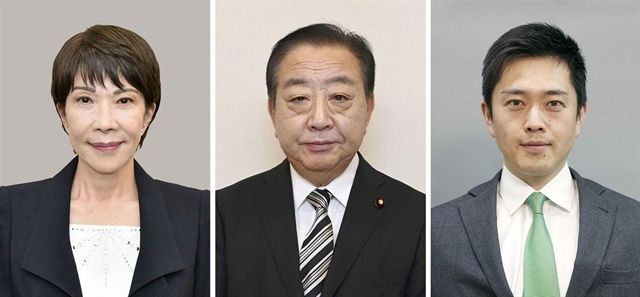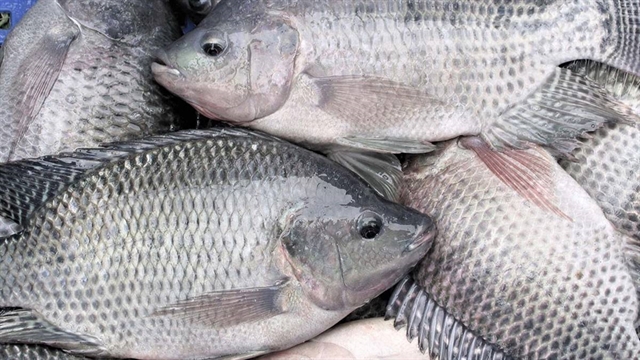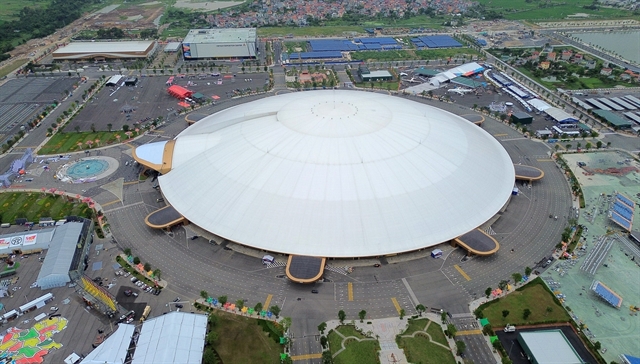 World
World

New French President Emmanuel Macron is set to name a prime minister and visit German Chancellor Angela Merkel on his first full day in office today.
The 39-year-old centrist leader laid out his ambitious plans for France as he took power on Sunday, promising to restore France's shattered self -confidence and help rebuild the flagging European Union.
PARIS — New French President Emmanuel Macron is set to name a prime minister and visit German Chancellor Angela Merkel on his first full day in office today.
The 39-year-old centrist leader laid out his ambitious plans for France as he took power on Sunday, promising to restore France’s shattered self -confidence and help rebuild the flagging European Union.
His choice of prime minister will be crucial for the first task, with the 46-year-old centre-right Edouard Philippe from the Republicans party seen as the favourite for the job.
Picking him would send a clear signal that Macron hopes to attract other young modernisers from the Republicans to his new centrist party, Republic on the Move (REM), which will contest parliamentary elections in June.
"If the prime minister comes from the right, Emmanuel Macron will be able to attack the parliamentary elections by dynamiting the right, in the same way he has done to the left," political expert Philippe Moreau-Chevrolet said.
Macron, who was economy minister under outgoing Socialist president Francois Hollande, has already attracted dozens of centre-left MPs to his movement as he reshapes French political life.
Without his own parliamentary majority, the former investment banker will find it hard to push through his planned reforms of the labour market, pensions, unemployment benefits and education.
"I will not reverse course on any of the commitments taken in front of the French people," Macron said on Sunday as he took power from Hollande, his former mentor, adding that "France is strong only if she is prosperous".
Philippe is the mayor of the gritty northern port of Le Havre and an MP for the region since 2012 who studied at the same universities as Macron and shares many of his views on the economy and social issues.
- Winning over sceptics -
Later this afternoon, Macron would travel to Berlin to meet Chancellor Angela Merkel, maintaining a French presidential tradition of making the first European trip to the other half of the EU’s power couple.
The fervently pro-European Macron wants to push for deeper ties in the 28-member EU to help the bloc overcome the imminent departure of Britain which voted to leave last year.
France’s place is in the European Union "which protects us and enables us to project our values in the world", Macron said on Sunday, but the club needed to be "reformed and relaunched".
He intends to press for the creation of a parliament and budget for the eurozone which would see Germany, the zone’s richest member, contribute funds to support economic growth in weaker nations.
German media, including influential tabloid Bild and news magazine Der Spiegel, have recently drawn attention to the danger of Macron’s presidency costing Germany more money.
"Very German obsession," Macron’s chief policy advisor Jean Pisani-Ferry wrote on Twitter on Saturday. "And strange disconnect from reality."
Olivier Ihl, an academic from the Grenoble Institute of Political Studies, said that the visit was "an important moment because he wants to relaunch Franco-German cooperation in a Europe that is on its knees".
Merkel welcomed Macron’s victory over Le Pen, saying he carried "the hopes of millions of French people and also many in Germany and across Europe".
- Symbolic day -
Macron, France’s youngest ever president, took the reins of power from Hollande at the Elysee Palace a week after his resounding victory over far-right leader Marine Le Pen in an election that was watched worldwide.
After a private meeting with Hollande and his first speech as president, Macron headed up the rainy Champs Elysees on Sunday in an army vehicle, waving to small crowds of wellwishers who gathered along the famed avenue.
His wife Brigitte, a 64-year-old who was his high school drama teacher, attended the ceremony and a later meeting at the Paris town hall wearing a light blue Louis Vuitton outfit.
Her three children from her previous marriage were also present at Sunday’s inauguration along with VIPs from France’s political scene and the young team of advisors behind Macron’s sensational rise.
The new president faces a host of daunting challenges including tackling stubbornly high unemployment, fighting Islamist-inspired violence and healing divisions exposed by an often vicious election campaign.
Hollande’s five years in power were plagued by a sluggish economy and bloody terror attacks that killed more than 230 people. He leaves office after a single term. — AFP




